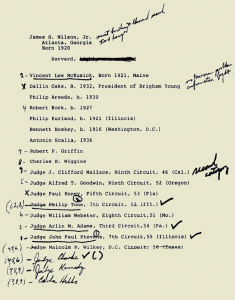ObamaCare Is Still Constitutional
 Today I particpated in another debate over the constitutionality of the Affordable Care Act’s individual mandate. At the invitation of the Milwaukee Chapters of the Federalist Society and the American Constitution Society, I debated Robert Levy of the Cato Institute over luncheon at the Milwaukee Athletic Club. My thanks to our hosts, to Mr. Levy, and to the audience. Below are my prepared remarks. My previous post on the consitutionality of the individual mandate can be viewed here.
Today I particpated in another debate over the constitutionality of the Affordable Care Act’s individual mandate. At the invitation of the Milwaukee Chapters of the Federalist Society and the American Constitution Society, I debated Robert Levy of the Cato Institute over luncheon at the Milwaukee Athletic Club. My thanks to our hosts, to Mr. Levy, and to the audience. Below are my prepared remarks. My previous post on the consitutionality of the individual mandate can be viewed here.
In December 1783, George Washington gave a toast at a dinner celebrating the formal dissolution of the Revolutionary Army. He did not use his toast to offer a tribute to individual liberty. Nor did he sing the praises of limited government. Instead, his toast was a simple expression of what he hoped the future would bring to our new nation. He raised his glass and he said: “Competent powers to Congress for general purposes.”
We must never forget that our Constitution is a document that was intended to create competent powers for Congress for general purposes.
Much of what Mr. Levy cites in oppostion to the individual mandate is based upon abstract principles. However, when we interpret the Constitution, we do not begin with abstract theories of political philosophy, and then attempt to shoehorn those theories into the text.
Instead, when we interpret the Constitution, we begin by looking to the text itself.
The power to “regulate,” which is the power delegated to Congress under the Commerce Clause, is the power to prescribe the rules by which commerce is governed. The word “regulate” means “to direct” or “to command.” Therefore, the plain meaning of the word “regulate” in the text includes a grant to Congress of the power to require action.

